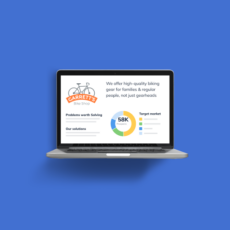Kody Wirth is a content writer and SEO specialist for Palo Alto Software—the creator's of Bplans and LivePlan. He has 3+ years experience covering small business topics and runs a part-time content writing service in his spare time.
How to Get Venture Capital and Angel Investor Funding
5 min. read
Updated January 4, 2024
Securing angel investment or venture capital (VC) funding can be a game-changer for growing businesses. However, these forms of investment are often challenging to obtain due to their highly competitive nature.
So what does it take to access these funding opportunities?
In this comprehensive guide, we’ll cover how to prepare for outside investment along with the intricacies of angel investment and venture capital. Let’s prepare you to connect with investors and get the funding you need to accelerate business growth.
What to do before seeking investors
Investment from angel investors or venture capitalists is rare for small businesses. If you believe you have a shot at landing this type of funding, here are the things you should consider beforehand.
Angel investment funding explained
An angel investor is typically an individual or group that has spare cash available and is willing to provide capital for a promising start-up or business expansion. They often invest much smaller amounts than venture capitalists and are willing to do so for businesses in earlier stages of growth.
Check out our selection of resources to help you prepare to connect with these types of investors.
Venture capital funding explained
Venture capitalists are investors or firms that provide capital for businesses with high growth potential. Unfortunately, this type of funding only accounts for less than 1% of funding for US businesses. But, if you have a strong initial interest in your business and a solid roadmap for fast-growth or potential growth into a large company—you might want to consider it.
Check out our growing selection of resources to help you out.
Investor templates and tools
Resources to help you prepare to pitch to venture capitalists and angel investors.



.png?format=auto)






